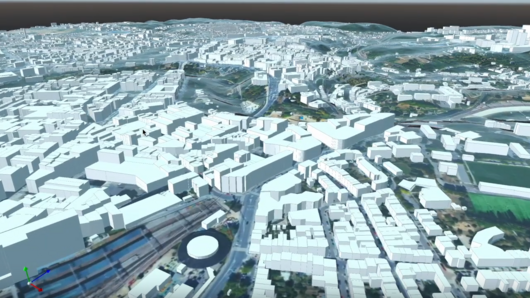Höchstleistungsrechenzentrum Stuttgart

28. März 2024
13:30
28. März 2024
17:00
Englisch
Basis
Themenbereiche ThemenBig Data
Numerische Strömungsmechanik
Industrielle Dienstleistungen
Numerische Simulation
Visuallisierung
Foundational Knowledge in Building Physics: Understanding the principles of heat transfer, thermodynamics, and fluid dynamics as they apply to buildings is essential for comprehending the underlying mechanisms of energy simulation.
Building Energy Systems: Familiarity with HVAC (heating, ventilation, and air conditioning) systems, lighting, and other energy-consuming systems within buildings helps in understanding the inputs and outputs of energy simulations.
Data Analysis and Interpretation: Ability to collect, process, and interpret data related to building energy consumption and environmental conditions is important for validating simulation results and making informed decisions.
Prof. Jean-Michel Dischler (Strasbourg University)
Prof. Christophe Prud'homme (IRMA, HiDALGO2, Strasbourg University)
Thierry Blandet and Nicolas VERGNES (ICube, GI Team: Geometric and Graphics and INSA)
Jonathan Sarton (ICube, GI Team: Geometric and Graphics)
All times are local times in the Central European Summer Time zone (Paris).
Please register at course via the button at the top of this page with your institutional e-mail address to prove your affiliation.
The final participants will be selected and informed after the registration deadline has passed.
This course is offered in cooperation by HLRS, Strasbourg University, and HiDALGO2. Your registration data will be transferred to these partners (legal notes at the provided links).
Registration closes on March 27, 2024 at 23:55.
Our course fee includes coffee breaks (in classroom courses only).
For lists of EU and EuroCC countries have a look at the Horizon Europe and EuroCC website.
Only participants from institutions belonging to these countries can take part in this course.
Maksym Deliyergiyev phone 0711 685 87261, maksym.deliyergiyev(at)hlrs.de
HLRS is part of the Gauss Centre for Supercomputing (GCS), together with JSC in Jülich and LRZ in Garching near Munich. EuroCC@GCS is the German National Competence Centre (NCC) for High-Performance Computing. HLRS is also a member of the Baden-Württemberg initiative bwHPC. Since 2025, HLRS coordinates HammerHAI.
This course is provided within the framework of EuroCC2.
Within the scope of the EuroCC2 project this training is offered free of charge. By participating in a training free of charge, companies receive state-aid corresponding to the regular market-prices listed in the service portfolio. Please note state-aid regulations in Germany.
EuroCC 2 and EuroCC4SEE have received funding from the European High-Performance Computing Joint Undertaking (JU) under grant agreement No 101101903 and No 101191697. The JU receives support from the European Union’s Digital Europe Programme and Germany, Bulgaria, Austria, Croatia, Cyprus, Czech Republic, Denmark, Estonia, Finland, Greece, Hungary, Ireland, Italy, Lithuania, Latvia, Poland, Portugal, Romania, Slovenia, Spain, Sweden, France, Netherlands, Belgium, Luxembourg, Slovakia, Norway, Türkiye, Republic of North Macedonia, Iceland, Montenegro, Serbia, Bosnia and Herzegovina.


This course is partly realised in cooperation with the Centre of Excellence HiDALGO2. Co-funded by the European Union. This work has received funding from the European High Performance Computing Joint Undertaking (JU) and Poland, Germany, Spain, Hungary, France under grant agreement No 101093457.
https://www.hidalgo2.eu/coe-hidalgo2-urban-building-modeling-and-simulation-lecture and course website at HiDALGO2.
See the training overview and the Supercomputing Academy pages.
See also information about the HLRS training department and staff.
Feb. 23 - 27, 2026
Online
Englisch
März 02 - 06, 2026
Stuttgart
Englisch
März 23 - Apr. 17, 2026
Hybrid, Stuttgart
Englisch
März 23 - 27, 2026
Hybrid, Stuttgart
Englisch
Juni 15 - 19, 2026
Hybrid, Stuttgart
Englisch
Juli 14 - 17, 2026
Stuttgart
Englisch
Aug. 31 - Sept. 01, 2026
Stuttgart
Englisch
Sept. 02 - 03, 2026
Stuttgart
Englisch
Sept. 07 - 11, 2026
Stuttgart
Englisch